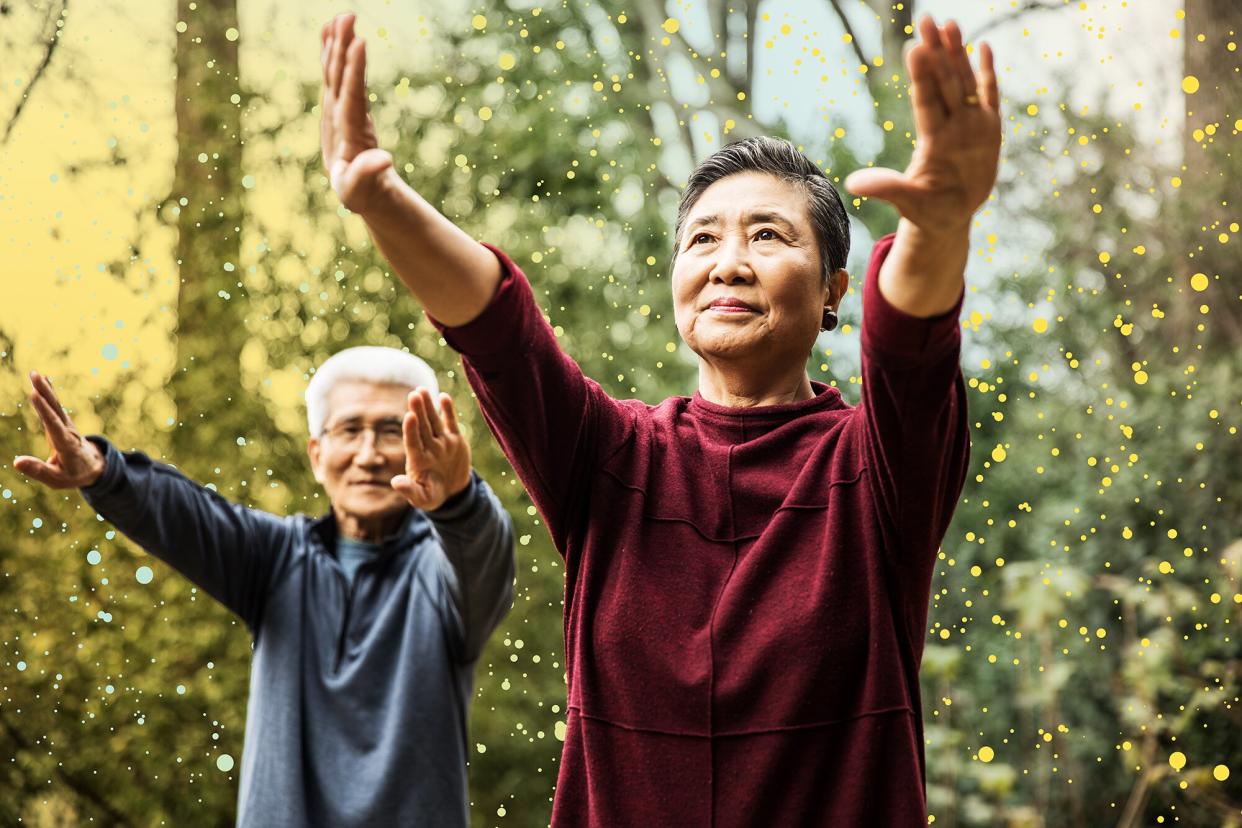Adding This Many Minutes of Exercise per Day Can Improve Health and Slow Aging, According to Science

Getty Images / MoMo Productions
After accounting for work, sleep, cleaning and other must-dos, the typical American has about 5 hours of free time daily, according to data from the U.S. Centers for Disease Control and Prevention (CDC). Five hours of free time on 7 days each week leaves us with 35 hours total (give or take, depending on what else might toss your schedule for a loop) to invest in whatever we see fit.
As pandemic-related shifts wear on, more and more of those hours are getting eaten up with extra screen time. This may be due to work from home duties, extra Netflix binges, tallying up more TikTok time or your Wordle obsession. But despite all those "free" hours for leisure, less than one in four Americans gets enough aerobic and strength training exercise, the CDC says.
With this in mind, and well aware that 150 minutes of exercise per week can sound daunting to those starting at zero, researchers from the CDC and the National Cancer Institute set out to determine exactly how much—actually, how little—exercise might make us healthier. Among adults age 40 to 85, just 10 additional minutes of moderate to vigorous physical activity per day would save 110,000 lives per year, according to a January 2022 report in the journal JAMA Internal Medicine. At 20 extra minutes per day, this stat nearly doubles (209,459 lives) and at 30 extra minutes, the researchers believe could prevent 272,297 deaths per year.
"We have known that regular exercise is essential and has tremendous health benefits," Vanita Rahman, M.D., the clinic director of the Barnard Medical Center at the Physicians Committee for Responsible Medicine tells Healthline. "What is unique about the study is that it shows us just how beneficial exercise is by providing quantitative measures. Regular exercise benefits virtually every organ system in our body. It reduces blood pressure, blood sugar and cholesterol levels. Exercise can also help us sleep better and improve our mood, sense of well-being and quality of life."
And you don't need to train for a 5K or take a Peloton class daily to score some very serious health benefits. Yes, even though many fitness pros claim that 30 minutes should be the bare minimum.
"People become so focused on needing 30 minutes of movement each day that if they can't dedicate a full 30 for any reason (as opposed to breaking it up throughout the day into 10-minute increments, for example), they'll end up doing nothing. This study linking movement and longevity is a good reminder that some type of exercise or functional movement throughout your day is still always better than doing nothing," Dana Ryan, Ph.D., director of sport performance and education at Herbalife Nutrition, adds to Healthline.
Think of it similar to your diet or hydration. Just because you don't eat your five-a-day every day (as in fruits and veggies) or drink 91 ounces of water, it doesn't mean you should just throw in the towel and eat zero fruits and vegetables and drink only soda or juice. Every little bit gets you closer to the "ideal," and each step makes it easier to make—and build upon—the habit. True, 10 minutes in one day doesn't seem like a lot. But add that up over the course of a year and you'll move your body nearly 61 more hours than if you used those 10 minutes to scroll through Instagram while sitting on the couch. (Hey, we've certainly been there, done that. Everything in moderation!)
Little shifts like taking the stairs instead of the elevator, parking farther from the entrance at the supermarket or trying this quick, equipment-free home strength workout can all be great ways to add one or more extra 10-minute nuggets of movement to your day. In addition to lowering risk for death, as we mentioned, regular exercise protects the body from aging-related bone and muscle loss.
Related: Doing This Walking Workout Every Day Could Help You Live Longer
"In our 30s, we all begin experiencing some level of age-related muscle loss called sarcopenia. If we are active daily, we lose less, but if we are inactive, we can lose on average 3 to 5 percent of our muscle mass per decade," Danine Fruge, M.D., medical director of the Pritikin Longevity Center in Miami, tells Healthline. "Maintaining a healthy muscle mass for our age is key for preventing falls and unhealthy bodies as well as increasing both qualities of life and longevity."
No matter how hard or how long you go, this research proves that movement matters. Here's how to exercise when you have literally no time, then discover the 5 best exercises for your health, according to a Harvard doctor.
And when you're ready to up the ante, crank up the intensity with a vigorous 10-minute micro workout. Doing so can rev your metabolism and help you burn more energy at rest.

